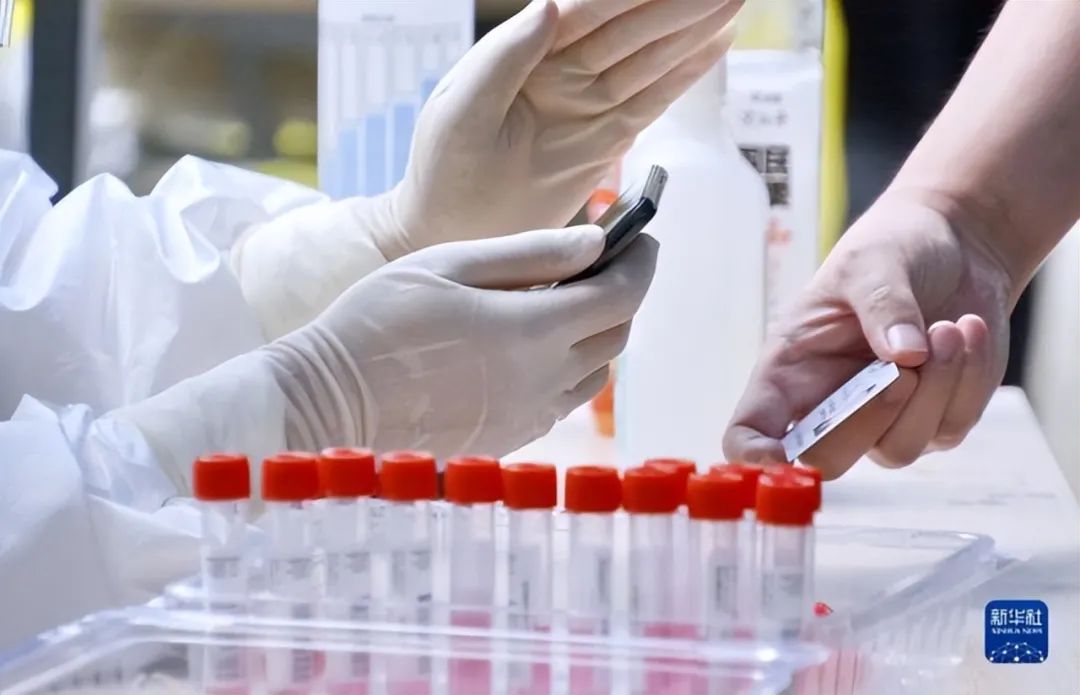Ideological photos into reality!This real world study shows that Dakotinib has potential for EGFR no
Author:Cancer Channel of the Medical Time:2022.06.13
*For medical professionals for reading reference

Dakatinib the treatment of EGFR non -sensitive mutations NSCLC real world research interpretation
In 2022, the Annual Meeting of the American Clinical Oncology Society (ASCO) was held in the form of online and offline conferences from June 3-7. As the largest and most authoritative academic conference in the tumor field, the ASCO Annual Conference has always been considered the "vane" of tumor treatment, attracting the attention of many scholars and experts at home and abroad.
Targeted therapy is currently the main treatment method of clinically targeting EGFR-positive non-small cell lung cancer (NSCLC), but the existing development and exploration of EGFR-TKI focusing on EGFR sensitive mutations, so Targeted therapy requires more attention. This year's ASCO Annual Meeting reported a real world research led by Professor Wang Yan, led by Professor Wang Yan, who was led by Professor Wang Yan of the Chinese Academy of Medical Sciences.
Take this opportunity, "Medical" invites Professor Wang Yan to discuss and analyze the clinical significance of this study and the current status of EGFR non -sensitive mutations NSCLC.
For EGFR non -sensitive mutations NSCLC,
Current clinical lack of high -level evidence
EGFR mutation is a relatively common genetic mutation type of NSCLC, and its incidence in Asian people is about 30%-50%[2]. The most common mutation type in EGFR positive NSCLC is 19 exogenous child lack mutations and 21 outer sub -L858R dot mutations. In addition, 12%-34%of EGFR positive NSCLC patients are typical or non-sensitive mutations [3-5], and the survival benefits of such patients after receiving targeted treatment are compared to EGFR sensitive mutations NSCLC patients are lower [6].
A post-analysis based on Lux-LUNG2, LUX-LUNG3 research, and Lux-lung6 research showed that Afutini was objective for EGFR18-21 outer-sensitive child-sensitive child-sensitive sub-sensitive mutations (L861Q, G719S, G719A, G719C, S768I) NSCLC. The relief rate (ORR) is 71.1%, the median without progress (PFS) is 10.7 months, and the median total survival period (OS) is 19.4 months [4]. In addition, there are phase II clinical studies that Oshitinib can be used to treat EGFR non -sensitive mutations NSCLC.
Professor Wang Yan pointed out that the main non -sensitive mutation types of EGFR include EGFR G719X, S768i, L861Q mutations, etc. Due to the low incidence of non -sensitive mutations in EGFR and many types, most clinical research has not been included in such patients. In addition, although some data prompts, EGFR-TKI may benefit patients' survival, but the existing clinical research on EGFR non-sensitive mutations NSCLC is mostly studied by small samples [8-10]. Therefore, the National Comprehensive Cancer Network (NCCN) NSCLC Clinical Practice Guide [11] Although multiple targeting drugs are recommended to treat the NSCLC people with EGFR S768i, L861Q, G719X mutations, due to the lack of high -level research evidence, the recommended level is recommended Not high.
It is worth noting that there are currently some data prompts that EGFR-TKI single drugs or combined chemotherapy may bring better efficacy to patients with non-sensitive mutations in EGFR. As a second-generation EGFR-TKI, it has shown certain potential among some patients with non-sensitive mutations in EGFR, and how this potential is worthy of in-depth investigation. This is the original intention and purpose of our team to conduct this study. Professor Wang Yan Add. The sword refers to the non -sensitive mutation of EGFR, and the effect of Dakininib showed the initial showing
This time, a study reported by Professor Wang Yan's team in the ASCO Annual Conference included 38 NSCLC patients carrying EGFR non -sensitive mutations. Thirty patients carry non -sensitive mutations in the main EGFR non -sensitive mutations in the clinically "common", including G719A/C mutations (13 cases), S768i+G719A/C/s mutations (8 cases), L861Q mutations (7 cases), and L861Q+G719A mutation (2 cases), and 8 other patients carry more rare non -major EGFR non -sensitive mutations, namely E709X mutations (3 cases), L747P mutations (3 cases), H183D mutations (1 case), and and and. G598V mutation (1 case).
The results of the study showed that after treatment, patients with 55.3%(21/38) were relieved, and patients with 89.5%(34/38) were controlled. The patient's median PFS reached 10.3 months (95%CI 5.8–14.8 To. For patients carrying non -sensitive mutations, 62.5%(5/8) and 87.5%(7/8) patients were relieved or controlled. In addition, it is worth noting that among patients with brain metastases, 88.9%(16/18) patients with intracranial metastases are controlled, and the median PFS is 6.6 months (95%CI, 6.3–6.9).
Regarding this study, Professor Wang Yan said that the following points were impressed by his feelings:
1. In the "pre -trial" before the formal research, it can be observed that some NSCLC patients carrying EGFR non -sensitive mutations clinically in the clinic, after other treatments cannot obtain satisfactory effect, choose to try to receive Darkitinib therapy, even if even Putting on back -line therapy, Dakotinib can also show a good effect [12], so for patients with significant benefits to receiving first -line targeted therapy, you can consider using Dakotinib for treatment as soon as possible after drug resistance. [ 13]. At the same time, there are related in vitro experiments that Dakotinib may have a certain potential for patients with drug resistance due to secondary L718X and L792X mutations after receiving Oshitinib. This study adds more confidence.
2. Among patients with NSCLC who carry EGFR non -sensitive mutations, there are many patients with composite mutations with multiple mutations at the same time. Whether this will affect the effect of the patient's acceptance of Dhakitinib is one of the focus of the institute's attention. Fortunately, according to the existing research data, the efficacy of Dakatinib has not been significantly affected for patients with compound mutations. Not only that, another real world study of our team also reminded that Dakotinib can produce good effects and safety on multiple EGFR mutant subtype patients [13].
3.Rcher 1050 Study [15,16] confirmed the efficacy of Darkitinib for EGFR 21 exogenous L858R mutations NSCLC, but the study was not included in patients with brain metastases. Controlling patients in the furnace is a matter of widespread attention. At present, some studies have proved that Darkitinib has certain effects on patients with brain metastases [17]. Related research conducted by our team also indicates that Darkitinib has good activity and tolerance for patients' intracranial lesions [[ 13], and the real world research reported by our team at the ASCO conference further confirmed that Dakotininib did have good brain activity.
Dance research may make up for forward -looking research
Inadequate data
Professor Wang Yan believes that although this real world study reminds Darkitinib to have certain clinical application prospects for EGFR non -sensitive mutations NSCLC, providing relevant clinical experience and evidence for clinical workers in tumor, but its level of evidence is limited. In the future, the clinical practice and rewriting guide will still need to be further conducted.
In addition, for those patients with different EGFR-TKIs for mutations, non-sensitive mutant patients have a mechanism for drug resistance, how to formulate the next treatment plan after drug resistance, and how to manage such patients throughout the process. Both need to be further explored and "benchmark" with EGFR sensitive mutations related treatment models.
The current Dance Study [18] is a forward -looking phase II clinical study designed to evaluate the treatment of EGFR non -sensitive mutations in the advanced period of NSCLC. After 6 weeks of treatment, the tumor relief depth was close to 50%during the first curative effect evaluation, and there was no obvious adverse reaction. In this regard, Professor Wang Yan also said that he hopes that Dance research in the future can supplement the previewing research data and provide more basis for clinical treatment of EGFR non -sensitive mutations NSCLC. Summarize
At present, whether EGFR-TKI can bring survival benefits for EGFR non-sensitive mutations NSCLC patients, it still lacks high-level evidence support. The real world research reported by Professor Wang Yan's team at the ASCO Annual Meeting shows that Darkitinib has a good clinical application prospect for EGFR non -sensitive mutations NSCLC, but in the future, further forward -looking research is needed to change clinical practice.
Expert Introduction
Professor Wang Yan
Internal Medicine of Cancer Hospital of Chinese Academy of Medical Sciences

Chief physician, doctoral tutor
Director of the China Clinical Oncology Society (CSCO)
Member of the Professional Committee of the China Anti -Cancer Association
Chairman of the Beijing Cancer Prevention Research Association Transformation Medical Association
Deputy Chairman of the Professional Committee of the Beijing Anti -Cancer Association
Deputy Chairman of the Beijing Cancer Prevention Society of Cancer Cancer Immunotherapy
Deputy Chairman of the Professional Committee of the Beijing Oncology Society
Standing Committee Member of the Beijing Cancer Prevention Research Association Drug Adverse Reaction Management Sub -Committee
Editor -in -chief of "Chinese Cancer Magazine" and "Chinese Version of the British Medical Magazine"
references
[1]Wangy, Li HS, etal. Efficacy and safety of dacomitinib in advanced non-small cell lung cancer patients harboring uncommon EGFR mutations: Real-world evidence from China. 2022 ASCO, Abstract e21163.
[2] Chan Ba, hughes bg. Targeted theracy for non-Small Cell LUNG CANCER: Current Standards and the Promise of the Future. Transl LUNG CANCER Ress. 4: 36–54.
[3] Castellanos E, Feld E, Horn L.Driven By Mutations: The Predictive Value of Mutation Subtype in EgFR-Mutated Non-Small LUNG CARL.J Thorac Oncol Oncol 2017; 12: 612–623.
[4] Yang JC-H,Sequist LV,Geater SL,et al.Clinical activity of afatinib in patients with advanced non-small-cell lung cancer harbouring uncommon EGFR mutations:a combined post-hoc analysis of LUX-Lung 2,LUX -Lung 3, and lux-lung 6.lancet oncol 2015; 16: 830–838.
[5] Robichaux JP, ELAMIN YY, TAN Z, ET Al.Mechaanisms and Clinical AND HER2 Exon 20-SELECTIVE KINHIBITOR Inch Cell Cell LUNG CANCER.NAT MED 2016;
[6] Effical of Dacomitinib in Patients with non-Small Cell LUNG CANCER Carrying Complex EGFR Mutations: A Real-World Study
[7] Cho Jh, Lim Sh, An HJ, et al.OSIMERTINIB for Patients with non-syll Lung CANCER HARBORONG Uncommon Egfr Mutations: A Multicenter, Open-Label, Phase II TRIAL (KCSG-L. L. L. L.Lu15 -Lu15-09) Clin Oncol 2020;38:488–495[8] Watanabe S, Minegishi Y, Yoshizawa H, et al. Effectiveness of gefitinib against non-small-cell lung cancer with the uncommon EGFR mutations G719X and L861Q. J Thorac Oncol. 2014; 9 (2): 189–94.
[9] Xu J, Jin B, Chu T, et al. EGFR tyrosine kinase inhibitor (TKI) in patients with advanced non-small cell lung cancer (NSCLC) harboring uncommon EGFR mutations: A real-world study in China. Lung Cancer . 2016; 96: 87–92.
[10] TU HY, Ke Ee, yang JJ, et al. A comprehensive review of uncommon egfr mutations in Patients with non-Small cell. LUNG CANCER. 2017; 114: 96–102.
[11] NCCN GUIDELINES VERSION 1.2022 NON-Small Cell LUNG CANCER
[12] li HS, Yang gj, Wang Y. Case Report: Dacomitinib May Not Benefit Patients Who Develop Rare Compound Mutations after-Line Osimrtinib Treatment. Front Oncol.
[13] Nishino M, Suda K, Kobayashi Y,et al. Effects of secondary EGFR mutations on resistance against upfront osimertinib in cells with EGFR-activating mutations in vitro. Lung Cancer. 2018 Dec;126:149-155.
[14] li HS, zhang jy, yan x, et al. A real-work study of docomitinib in later-line settings for advanced non-small lungcer patition egfr mutations. CANCER Med. 20222222222222222222222222222222222222222. 20222222222222222 : 1026-1036.
[15] Wu YL, Cheng Y, Zhou X,etal. Dacomitinib versus gefitinib as first-line treatment for patients with EGFR-mutation-positive non-small-cell lung cancer (ARCHER 1050): a randomised, open-label, phase 3 trial. Lancet oncol. 2017 nov; 18 (11): 1454-1466.
Archer 1050). LUNG CANCER. 2021 APR; 154: 176-185. [17] Peng W, PU X, Jiang M, Wang J, Li J, Li K, xu F, chen Q, Cao, Cao, CaoJ, Chen y, wu l. Dacomitinib induces object responses in metastatic braine lesions of patients with egfr-mutant non-cell lung cancer. LUNG CANCER. 2021: 202221.
Study). BMC CANCER. 2022 Mar 19; 22 (1): 294.
*This article is only used to provide scientific information to medical people, and does not represent the viewpoint of this platform


- END -
Cancellation of normalized nucleic acid detection or inspection nucleic acid certificates in many places across the country

Recently, the prevention and control policies of the epidemic in many places in th...
Heilongjiang's latest epidemic notice
At 0-24:00 on June 13, 2022, there was no new new coronary pneumonia's epidemic information report in Heilongjiang Province.As of 24:00 on June 13, there are two confirmed cases in the province and on...